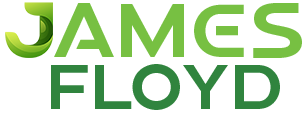ADHD – Prescription Medications Vs Natural Remedies
While there is, of course, a place for prescription medication in certain cases of ADHD, you must give careful consideration regarding possible side effects. The use of any stimulant medications in children under age 6 is not recommended. So please ensure you discuss with your doctor the risks and benefits of giving these medications to your child.
It is strongly advised that all parents thoroughly research any suggested prescription drugs before commencing the treatment on their child. Making sure that the following criteria are fully investigated: common uses, cautions, possible side effects, overdose, additional information, and major drug interactions.
In America, The Food and Drug Administration (FDA) are still investigating the side effects of particular prescription ADHD drugs, and it is therefore advisable that parents do their own research into these medications so that they are fully aware of the potential risks. As research into the long-term effects of drugs prescribed for ADD is still in its early stages. Much more research is still required. Discuss with your doctor the risks and benefits of using their suggested medications on your child.
Physicians still have a very difficult time prescribing medications which they feel will produce beneficial results, so treatment is individualized and usually performed on a trial and error basis. This is very much a ‘hit and miss’ technique. As such it requires close observation and cooperation between Physician, parents/carers and the child. This unfortunately, is not an ideal situation. In certain circumstances, with this trial and error system, a child may be taking a cocktail of drugs to treat the side effects of the initial medication, thus creating a domino effect.
Medications don’t cure ADHD, they only control the symptoms on the day they are actually taken. Although the medications may help the child pay better attention and complete their school work, they do not increase knowledge or improve their academic skills, like some parents have been led to believe. However, this may just as easily be achieved through behavioral therapy and other techniques – such as creative teaching methods. It is imperative that you make sure that YOU are educated on all aspects of ADD/ADHD before making a decision on the medication.
The best chances of minimizing any side effects, is to use a natural remedy that is totally free of side effects completely. Whilst many doctors believe, or admit, these do exist. There are alternative treatments available for ADHD, such as the ones mentioned below:
Herbal Remedies – Many parents have tried natural remedies as an alternative to psycho-stimulants and other prescription drugs. Small trials have found that some agents, such as oral flower essence, Panax Ginseng, Ginkgo Biloba, and Melatonin may have benefited ADHD sufferers.
There are also some Homeopathic remedies which actively target some of the more disruptive symptoms of ADHD and allow the child to concentrate easier. Natural remedies should be considered as a first step ahead of any psychiatric medication. When Natural Remedies are combined with a healthy lifestyle, relevant counseling, and strong dietary control, they have been shown to be effective in helping to alleviate the symptoms of ADHD.
Dietary Approaches – A number of specialized diets have been created for people suffering with ADHD. Encouragingly various studies have reported improved behaviour with diets that restrict possible allergens. Parents should discuss the elimination of certain foods with their health care professional or Homeopath or Nutritional expert before restricting the diet of any child.
Meditation Aids – A technique that uses sound may prove to be an effective tool for increasing children’s attention. It also helps the child control their own brain wave activity. These sounds may also be specially mixed to improve attention, motor control and certain academic skills. When used with relaxation it also teaches the child to feel more relaxed, and less fidgety, and more focused.



Comments are closed.